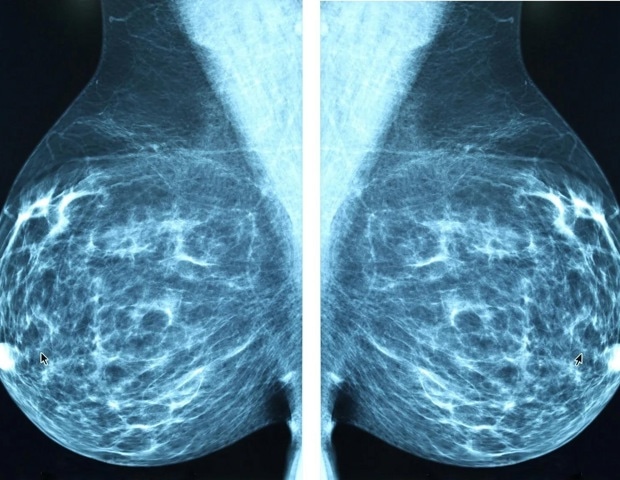People with type 2 obesity-driven diabetes tend to have more aggressive breast cancers, but no one knows exactly why. A new study by researchers at Boston University Chobanian & Avedisian School of Medicine and published in Springer Nature found that tiny particles in the blood, known as exosomes, which are altered by diabetes, can reprogram immune cells inside tumors making them weaker and allowing the cancer to grow and spread more easily.
Gerald Denis, PhD, corresponding author, the Shipley Prostate Cancer Research Professor at BU
In the study, researchers used tumor samples from breast cancer patients to grow 3D tumor models in the lab. Known as patient-derived organoids, these models contain the immune cells originally found in the tumor. These mini tumors were treated with blood exosomes from people with and without diabetes but also without any cancer. Then researchers analyzed the organoids using single-cell RNA sequencing to see how the exosomes affected the immune cells and the tumor itself.
The patient-derived organoid system developed by Denis and first author Christina Ennis, PhD, is the first to preserve original immune cells from human tumors, letting scientists study tumor-immune interactions in a lab setting that closely mimics real life. In addition to breast cancer, this study also may be relevant to other cancers affected by immune suppression and metabolic disease.
“Breast cancer is already challenging to treat, and people with type 2 diabetes have worse outcomes, but clinicians don’t fully understand why,” said Denis. “Our study reveals one possible reason: diabetes changes the way the immune system works inside tumors. This could help explain why current treatments, like immunotherapy, don’t work as well in patients with diabetes. Knowing this opens the door to better, more personalized treatments for millions of people.” Over 120 million Americans are diabetic or prediabetic, yet if they develop cancer, they are not treated differently in any significant way by the standards of treatment in oncology. Thus, this work addresses a serious public health challenge.
This work was supported by grants from NIH: U01CA182898, U01CA243004 and R01CA222170 to G.V. Denis; 5T32AI007309 (PI: Gummurulu) to C.S. Ennis.
Source:
Boston University School of Medicine
Journal reference:
Ennis, C. S., et al. (2025). Plasma exosomes from individuals with type 2 diabetes drive breast cancer aggression in patient-derived organoids. Communications Biology. doi.org/10.1038/s42003-025-08663-y
